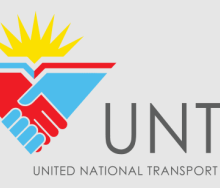Making sense of customs compliance and freight forwarding is all fair and well, but what the cargo industry really needs is an overarching qualification that equips individuals with broad specialisation in business essentials to engender entrepreneurial expertise.
Luckily for the supply chain and logistics industry, that is exactly what the Da Vinci Institute’s Bachelor of Commerce in Business Management sets out to do, says Dr Mario Landman, dean of design at the leadership academy.
June’s announcement (*) that there was now a business degree with “electives” in freight forwarding and customs compliance, made possible through a partnership with trade skills incubator Metro Minds, means students can now expect a much wider and more versatile learning experience.
Although narrow-focused training through industry-specific institutions is well established, Da Vinci’s BCom is already widely regarded as a groundbreaker of sorts.
Landman explains that in higher education there are very few qualifications that speak specifically to logistics and supply chain.
“The reason for that is trading developments in the larger logistics and supply chain milieu took place through international bodies dedicated to the industry.
“There wasn’t really a need from these associations for higher education academic qualifications to align with their professional needs.”
Through previous experience, Landman says, he found that “qualifications had a primary focus on the technical logistics stuff and not really a focus, even from a secondary point of view, on the larger business development competency or management leadership skills”.
Now, however, with a degree that majors in business management as it applies to freight forwarding and customs compliance, Da Vinci hopes to provide a “more rounded, sophisticated qualification for the freight industry”.
“Skilling people in the technical aspects of things like customs compliance and freight forwarding is great, but it doesn’t make them problem solvers. It makes them clerks. This qualification takes it beyond the knowledge that a clerk is meant to have and puts it in the hands of a person who can probably make strategic decisions.”
The degree also underscores progressive development within the industry, Landman says.
“Positioning this qualification at a higher educational institution says a lot about the level of professionalisation that this particular industry has undergone – that there is an appetite beyond just the technical training of the recent past.
“In my past I was the director of an institute for logistics and supply chain management where I had experience of qualifications with a primary focus on the technical logistics stuff and not really a focus, even from a secondary point of view, on the larger business development competency or management leadership skills
“Metro Minds marries these two. It has sufficient input from a technical point of view, but then marries it to general business components.
“The potential benefit to the students is far wider than just doing a degree or programme in freight forwarding and compliance.”
* Read this for context: https://tinyurl.com/4nrxp9he













